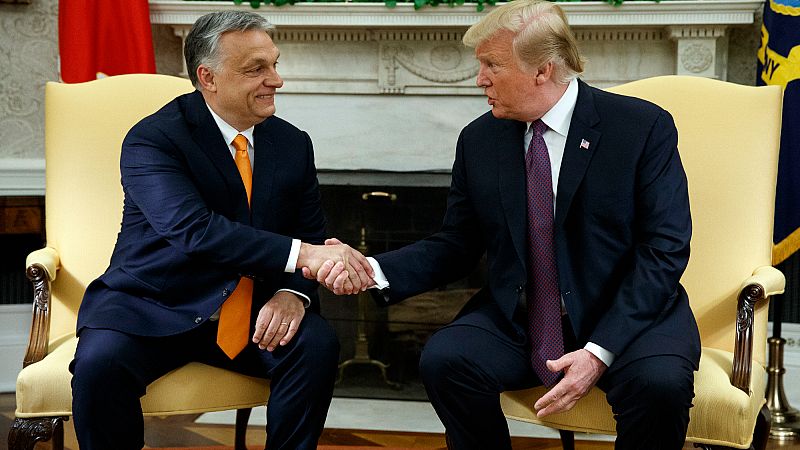Donald Trump called Hungary's Orbán to discuss Russian oil imports

Donald Trump and Hungarian Prime Minister Viktor Orbán discussed Hungary's Russian oil imports in a phone call yesterday evening, Hungary's Foreign Minister, Péter Szijjártó, has confirmed.
"The Prime Minister also spoke with President Donald Trump recently, and they discussed several matters, including the state of the war, the possibility of peace, the state of the world economy, the situation arising from the tariffs, and, of course, the issue of Central European energy supply. This happened a few hours ago," Szijjártó told reporters after meeting with his Russian counterpart, Sergey Lavrov.
Earlier, Donald Trump demanded that all NATO allies suspend oil imports from Russia to break Russia's war economy. He said he was prepared to talk to Orbán about the issue.
“He is a friend of mine. I have not spoken to him, but I have a feeling that if I did, he might stop. And I think I’ll be doing that," Trump said earlier this week.
Orbán's cabinet minister Gergely Gulyás discussed the content of the phone call during a press briefing in Budapest on Thursday.
"He made the American president aware of the Hungarian angles which make for a rational decision in the country's interest and which are required to keep utility costs down. The President understood these aspects," Gulyás said.
The minister added that Hungary has few options to diversify its oil supplies, as there is limited capacity in the Adria pipeline, which enters Hungary from Croatia.
Pressure growing on Hungary to give up Russian oil
Hungary's Viktor Orbán is a close political ally of Donald Trump in Europe, as the views of the two leaders align when it comes to migration and right-wing policies. But the latest push by Trump to pressure Putin into ending the war could harm Hungary's economic model, which relies on cheap imports of Russian fossil fuels.
Besides the US administration, the EU is also stepping up efforts to cease energy imports from Russia.
The Commission previously presented an ambitious roadmap to eliminate all purchases of Russian fossil fuels by the end of 2027 at the latest.
But amid pressure from Trump, Brussels has taken a step to speed things up in a new sanctions package, which, if approved, will bring the end of Russian LNG one year earlier to 1 January 2027.
On Wednesday, the Commission also revealed that it might hit Russian fossil fuels with tariffs.
According to Hungarian energy expert Attila Holoda, Hungary has sufficient capacities and alternative routes to replace Russian Ural oil, but this would endanger the profits of Hungary's Oil and Gas Company MOL.
"MOL cites technical difficulties because it does not want to give up this profit," Holoda said.
Today

